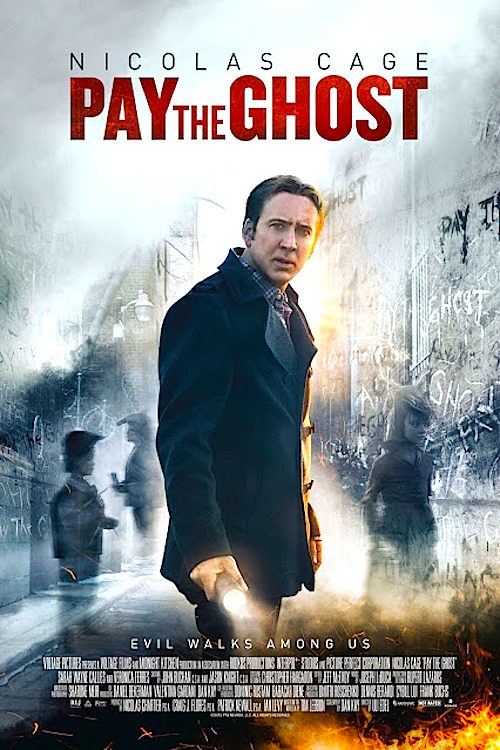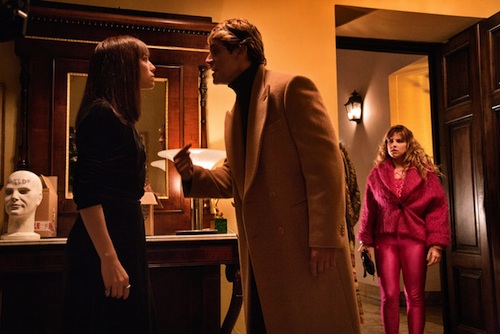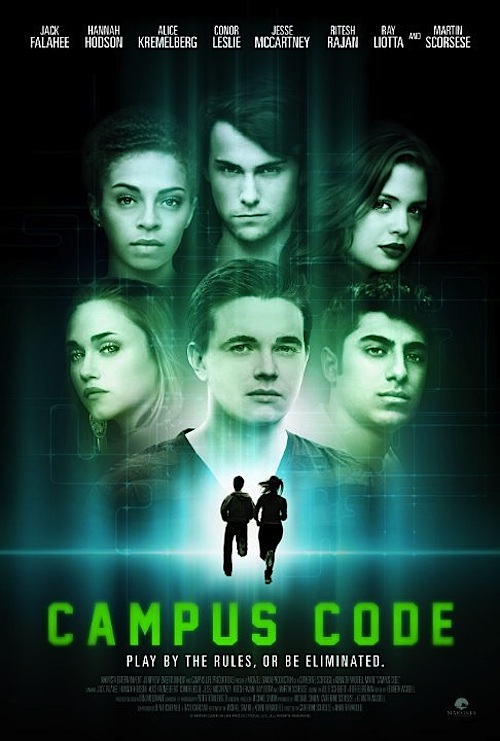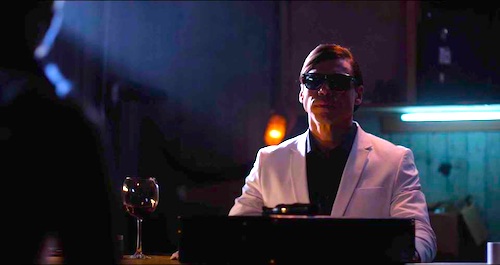By Joe Bendel. Tackling a novel previously adapted by the great Kon Ichikawa and the notorious Tinto Brass ought to intimidate most filmmakers. Arguably, Ichikawa was perfectly suited to convey the psychological complexity of Jun’ichirō Tanizaki’s The Key, whereas Brass has a strong handle on its sexual content. Jumping in with both feet where wiser directors might fear to tread, Jefery Levy reconceives it as a dreamlike fantasia, with generous nods to silent era cinema. Prepare yourself for the overload of visual stylization in Levy’s The Key, which screens during the 2015 Hollywood Film Festival.
Despite erroneous online references, Tanizaki did not win the Nobel Prize for literature, but one of the most prestigious Japanese literary awards is named in his honor, so he is still important. To convey the epistolary nature of Tanizaki’s novel, most of the film is relayed through the voice-over narration of a dysfunctional married couple writing in their respective journals. They have basically have one thing on their minds, especially Jack.
It is safe to say Jack is way more into Ida than vice versa. As the film opens, Jack resents her frigidity, even while reproaching himself for being an inadequate lover. Ida largely confirms his unsatisfactory skills, but claims to have mixed feelings about him overall. After all, they live in opulent splendor, nestled in the Hollywood Hills. They also have a grown daughter who still lives on the estate, resenting Jack for being weak and her mother for being more beautiful than her.
 Knowing they both keep diaries, Jack and Ida each deliberately write assuming the other reading, while making a show of not stooping to such an invasive low themselves—or so they claim. Exploiting Ida’s fondness for wine, Jack starts regularly exploiting her during the stupors he encourages, yet he half-suspects she might actually be conscious and passing judgement the entire time. To indulge his emotional masochism, he also pushes her into having an affair with his young assistant Kim (a dude, whose name is derived from Kimura).
Knowing they both keep diaries, Jack and Ida each deliberately write assuming the other reading, while making a show of not stooping to such an invasive low themselves—or so they claim. Exploiting Ida’s fondness for wine, Jack starts regularly exploiting her during the stupors he encourages, yet he half-suspects she might actually be conscious and passing judgement the entire time. To indulge his emotional masochism, he also pushes her into having an affair with his young assistant Kim (a dude, whose name is derived from Kimura).
If you enjoy deliberate over-exposure, faux distressed film stock, and the juxtaposition of color and black-and-white cinematography, than The Key just might be your aesthetic ideal. However, if you would prefer a smooth viewing experience, The Key will drive you to distraction with its never ending trick bag of visual distortions and pretentiously arty camera angles. Levy and cinematographer William MacCollum are not exactly Orson Welles and Gregg Toland, but there is something tragically compelling about their over-reaching ambition.
Sadly, Levy takes Tanizaki’s celebrated novel and turns it into purple prose. Still, somehow David Arquette and Bai Ling deliver their narration with level voices, in all scrupulous earnestness. Frankly, Ling has some surprisingly potent moments, giving a hint of what she might have done had better roles been available when she first made a name for herself. She also has absolutely no fear or self-consciousness when it comes to playing Ida’s more physically and psychologically revealing sequences. In contrast, the awkward Arquette never looks right as the dissipated Jack, sticking out like Deputy Dewey in his straight dramatic scenes.
The Key could be considered the Calvin Klein commercial Guy Maddin never made. It fancies itself an avant-garde exploration of sexuality and codependency, but it has the maturity of Verhoeven’s Showgirls. Almost worth seeing just to confirm it exists, The Key screens this Sunday (9/27), as part of this year’s Hollywood Film Festival.
LFM GRADE: D
Posted on September 25th, 2015 at 2:23pm.





